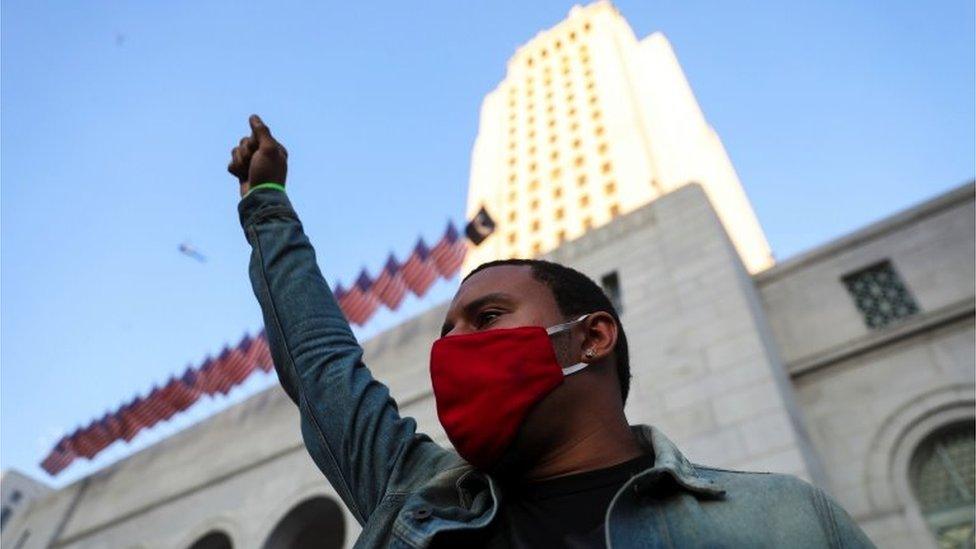Black Lives Matter: 'Why we stood up for George Floyd in the UK'
- Published
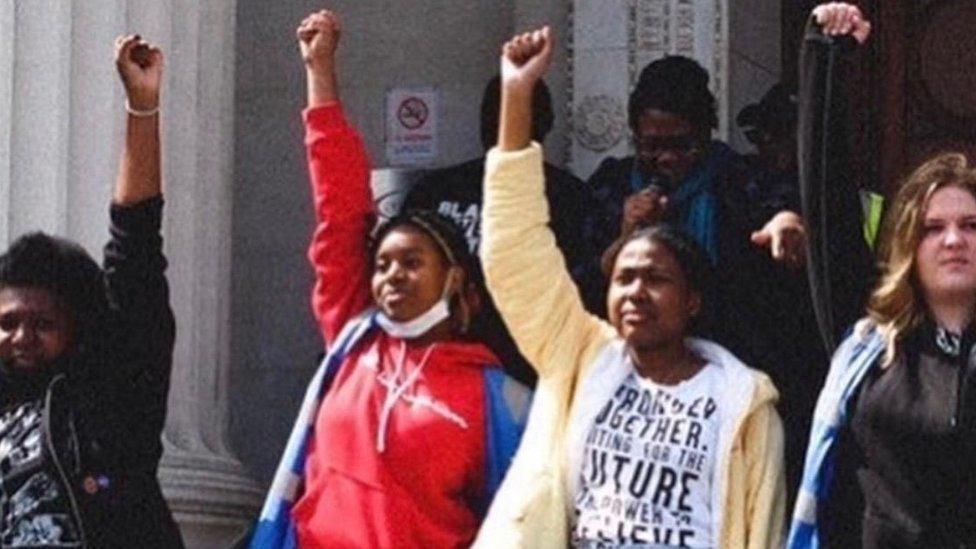
Nevada says that organising the protest with her friends made planning easier
After a weekend of protests around the UK following the death of George Floyd, we spoke to three people about why they decided to attend rallies and how the killing has resonated so much with people outside of the United States.
'I was completely overwhelmed'
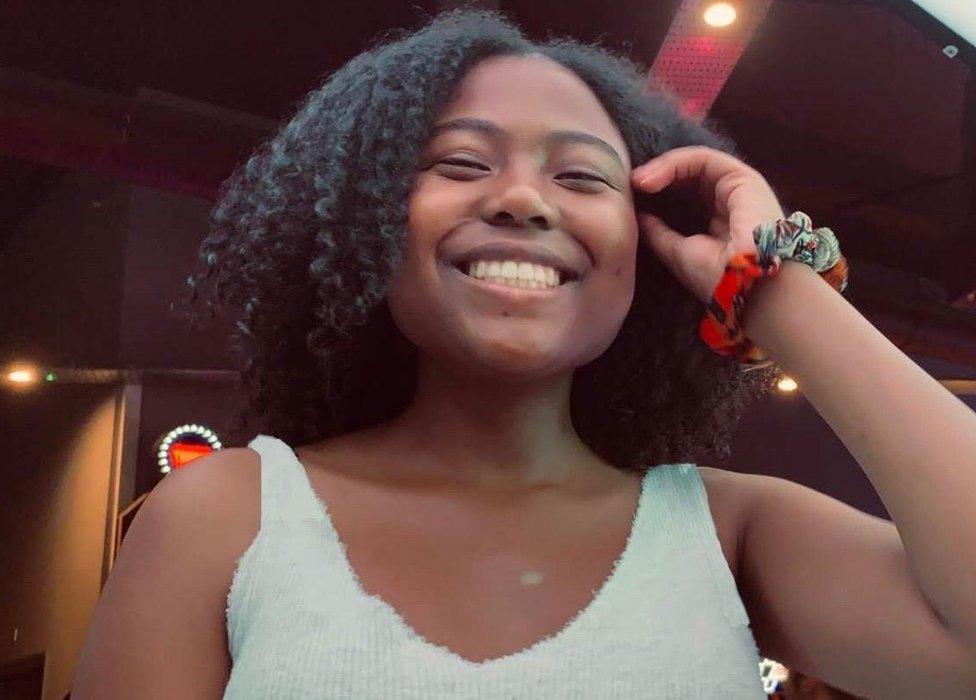
"If I have to take one for the team and protest now, I would rather be doing it than my younger sister," says Nevada Claxton, 18.
Alongside her friends, Nevada helped to organise the Luton Black Lives Matter protest on Saturday.
"The turnout was honestly shocking, I didn't expect it to be like that. It was amazing," she said.
"I was completely overwhelmed because even when the hail came down and it was raining heavily, no-one left. People still marched."
Nevada acknowledges why people were opposed to protests happening during Covid-19. Last week Health Secretary Matt Hancock urged people not to breach lockdown rules to take part.
"It's true that those from a BAME background are dying at a horrifying rate," she said. "But at the same time we are battling two things. Racism is a pandemic also. It was a tough decision to make."

How George Floyd's death resonated in the UK

Nevada said she was finding social media overwhelming at times.
"You know that people are trying their best to become aware by sharing social media posts," she said. "But for some people seeing footage of George's death is repeating trauma.
"I have ignored everyday racism and micro-aggressions but I think in that moment, watching the video, those emotions overcome you."
'People honked in support'
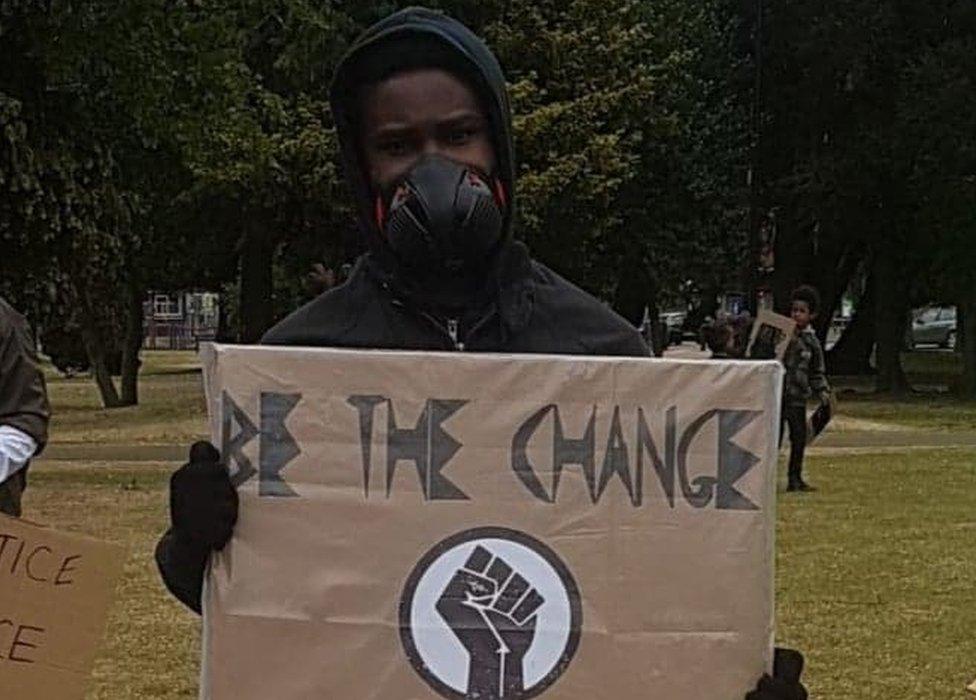
Rahman Telliam said he did not want to attend the London protest due to fears of social distancing
"When I learnt about what happened to George Floyd, I was sickened, I was shaking, I had tears in my eyes," said Rahman Telliam, 23.
"I watched the whole video, and it's close to 10 minutes of cruelty and inhumanity. I was very shaken."
Rahman attended the Dunstable "Walk for George" on Saturday. He did not want to attend the London event out of fears he might not be able to socially distance, but as it was a smaller event he felt that it would be easier for him to do so.
"We were encouraged to wear masks and made a considerable effort to distance," he said.
"People honked in support, but we were also met with people shaking their heads, which didn't surprise me."
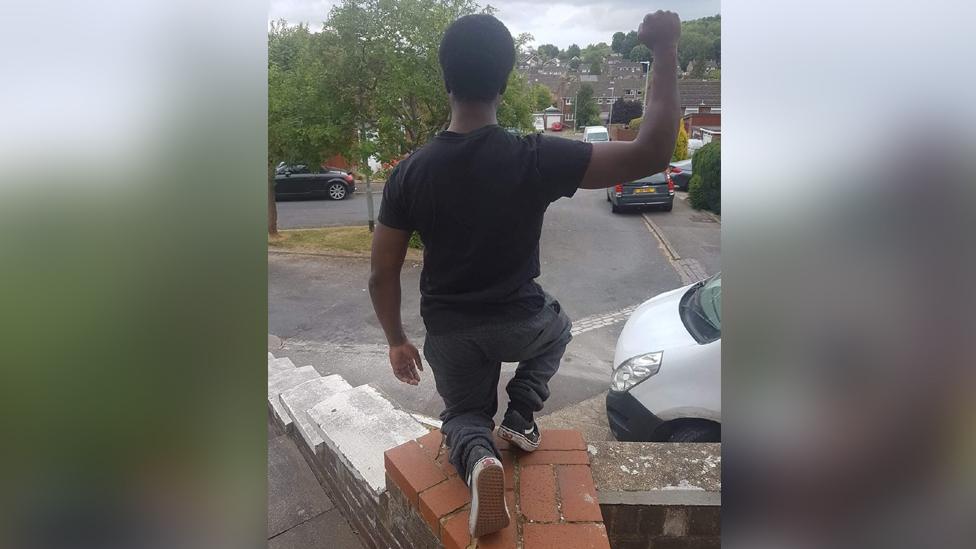
Rahman Telliam took the knee as part of the global demonstrations following the death of George Floyd
Rahman says he is quite "dormant on social media" but "felt that he had to use social media to talk about racism because it has been a large issue for centuries".
"Statistics support that when it comes to stop and search, black people are more more likely to be stopped by the police," he said.
"I think if there is a second wave of coronavirus, Black Lives Matter protesters may be blamed. But I think we should look and see if social distancing took place during the heatwave and VE Day celebrations."
'It's just the right thing to do'
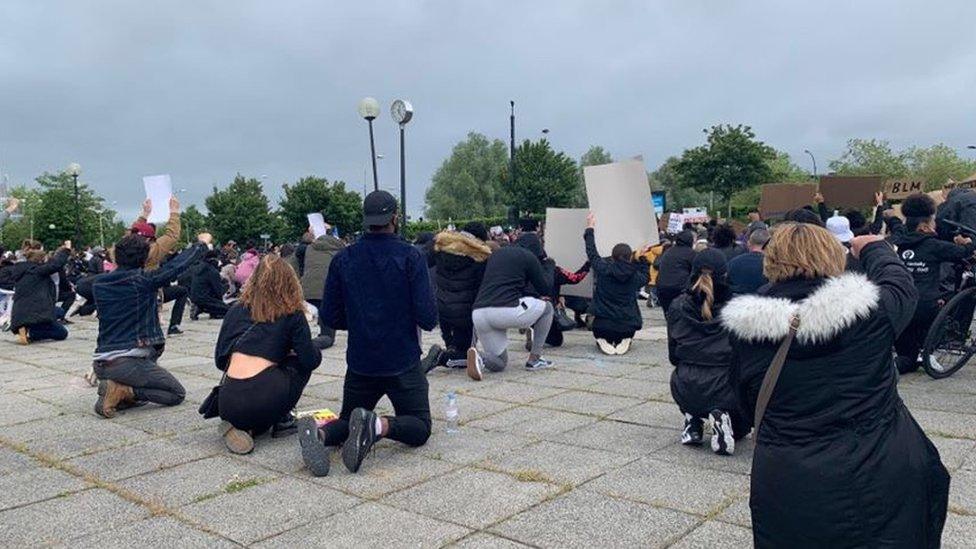
Hayley Fergusson said the Milton Keynes protest was well planned
The Milton Keynes Black Lives Matter protest fell on the same day as Hayley Fergusson, 23, and her boyfriend's three-year anniversary.
The pair both attended the protest.
"It was a strange and empowering feeling," she said. "But I feel like we shouldn't even have to be protesting for equality.
"I have friends and family who are black and I also went with my step-sister, who has Jamaican heritage. But it's not even about that, it's just the right thing to do. I just wanted to be able to use my privilege and support others.
"Making people aware on social media is good, but that only goes so far. I've donated to causes, but I wanted to do more."
Hayley said the protest was set up in a way that made it as "safe as possible for people to attend".
"We were told that we had to attend with a mask and there were crosses on the floor to make sure that people were socially distancing," she said.
"As someone who is not black, I will never truly understand what it's like to be a black person, the best I can do is try and be supportive."

Find BBC News: East of England on Facebook, external, Instagram, external and Twitter, external. If you have a story suggestion email eastofenglandnews@bbc.co.uk, external
- Published4 June 2020
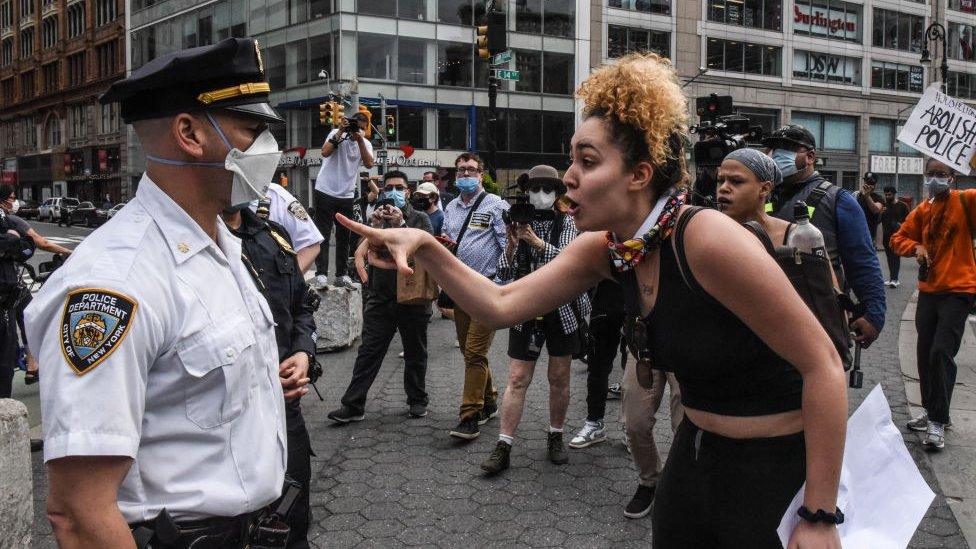
- Published5 June 2020
